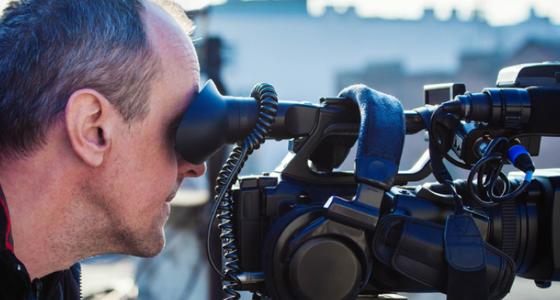Not too long ago, being a filmmaker meant a very specific thing, and becoming one meant going down a very specific career path. In the days before smart phones, people who wanted to make films went to film school to learn the craft of filmmaking and how to use the tools. After graduating, they found work on a crew as a production assistant and worked their way up by proving themselves to be both capable and talented. That’s a massive oversimplification and generalization, but this “path” was very much a reality for filmmakers.
Flash-forward to today and that approach is almost completely gone. Sure, amazing film schools still exist, but the actual need to go down this path is becoming less and less. In the days when aspiring filmmakers went to film school, students lined up because the classroom environment was the only place they had the opportunity to get their hands on the necessary filmmaking tools, such as expensive cameras and hourly editing suites.
Today though, young filmmakers know they already have all the tools they need to shoot, cut and deliver content. Unlike other industries, filmmakers don’t have anything analogous to the Thiel Fellowship, encouraging students to drop out of school and pursue their own work, although its likely a moot point with fewer young filmmakers going down that path to begin with. They’re already learning how to be filmmakers from the moment they start playing around with their parent’s smart phone. Eight-year old kids are creating impressive projects with little more than the cameras on their phones, but so are professionals.
This isn’t to convince you that there’s no merit in going to film school. Off the top of my head I can think of numerous schools (not just USC) that have tremendous programs that are worth the time and effort. The point is that with or without this education, people of all ages and experience can and are getting creative behind the camera, and that fact has changed the paradigm.
Filmmaking tools have been democratized to a degree that few could imagine even a decade ago, redefining what it means to be a filmmaker. Filmmakers aren’t just making films any longer; they’re turning themselves into YouTube stars and creating five-second films. This content might not make them filmmakers in the traditional sense, but that’s only if we’re using an outdated term to describe such incredible and unique visual efforts.
All of which goes back to the question of what it means to be a filmmaker today, because whether we want to admit it or not, the term is ripe for reinterpretation. YouTube stars aside, commercial directors will typically refer to themselves as filmmakers, regardless of the amount of films they’ve actually made. They’re telling a story with the camera, and that’s the reality for filmmakers whether they’re shooting a major motion picture or a car commercial or a project that only lasts a few seconds.
As Larry Jordan has said, we need to change with the technology, but we also need to change with the environment. Being a filmmaker isn’t just about having an idea or knowing how to focus pull. It’s about being able to create something that resonates with an audience. It’s about being able to tell a story in a powerful way. It’s about using whatever resources are available to you to bring your idea to life. That last part is key, because it’s only recently that those resources are both incredibly powerful and widely available.
The term “filmmaker” has evolved before our eyes, and it’s time we embraced it. The word “film” is obviously embedded in there, but being a filmmaker is about so much more than working on or pursuing feature work. Plus, few professionals use actual film any longer, and that number is only going to get less and less.
For as much as I’ve talked about the film school career path that used to define filmmakers, there never was a set path to success, just like there isn’t now. But what there is now is a lot more opportunity to create something relevant. There’s more opportunity to get a project in front of people. There’s opportunity to build an audience and showcase what you can do. There’s opportunity for literally anyone to create and tell a story in a powerful way.
This isn’t to tell anyone that they need to follow their passion. That’s a given. But doing so today as a filmmaker can mean going down various paths. For some that means film school. For others that means working on their own film projects. For others it means collaborating with friends to create content designed for YouTube. And for others it means something totally different. To be a filmmaker today, all that matters is that someone can embrace the endless opportunities to create something with little more than a smart phone and some free software applications.
It’s also important to remember that these advancements are relevant to everyone. With technology like VR on the horizon, how filmmakers think of and interpret the camera is going to be a topic of conversation. Does that mean filmmakers will need to take a completely different approach? Or does it mean they need to get a better understanding of the capabilities? Does it mean they need to reconsider their story? The answer in all of these cases is “yes”, and while the fallout from some of those answers will be more successful than others, what’s essential to remember is that the experiences in success and failure are all that really matters. Those experiences can be used for the next project, because the filmmaker who isn’t thinking about their next project has already made their last one.
Filmmakers have always creatively evolved as their careers progressed. Filmmakers today simply need to acknowledge and understand that this evolution won’t just be about them, but about the tools they use as well as the industry itself.
Thought Gallery Channel:
Creative Master Series
